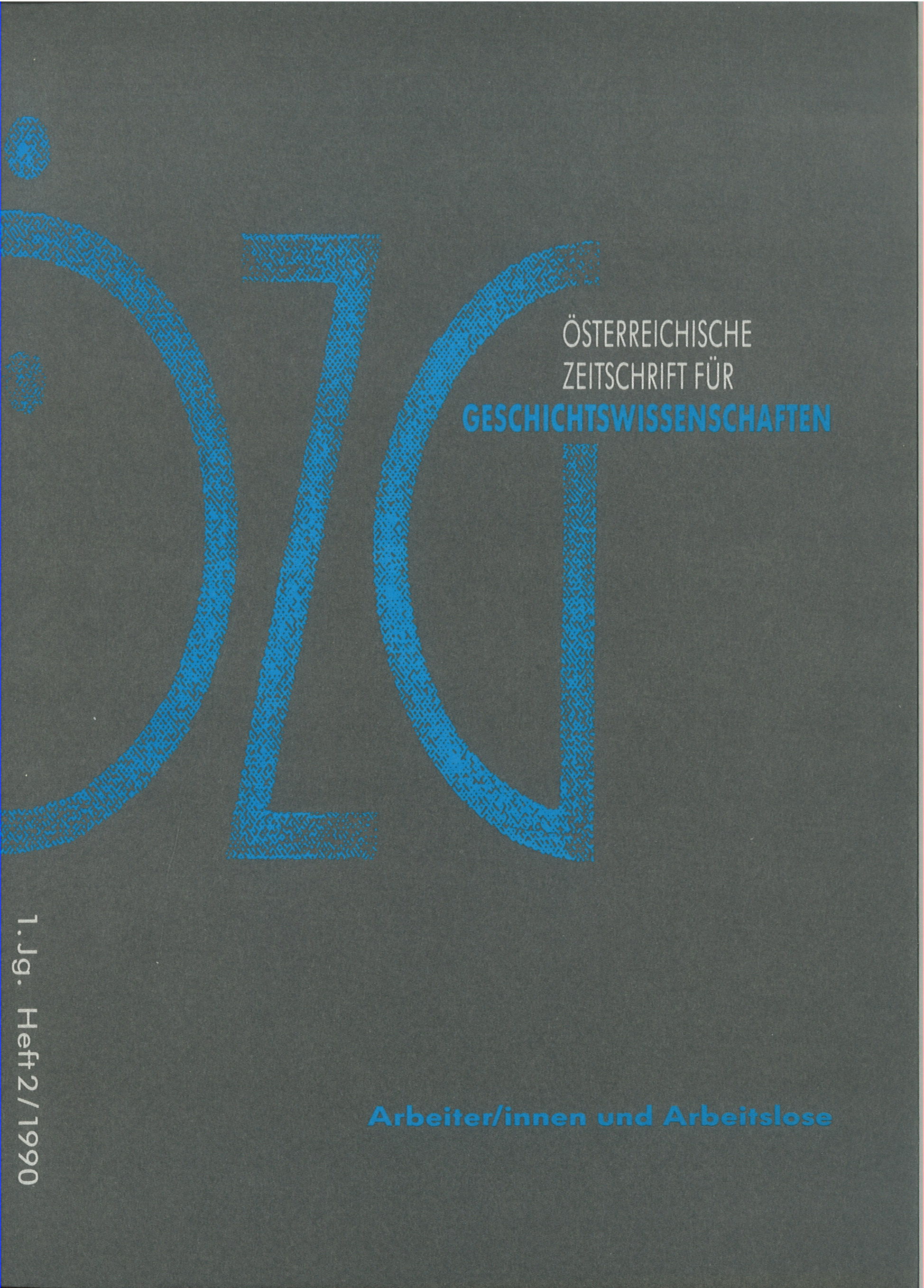Die Musealisierung der Arbeit
DOI:
https://doi.org/10.25365/oezg-1990-1-2-2Abstract
The current phenomenon of putting industrial labour into the museum (,,Musealisierung“) raises the question if, by doing so, society is trying to democrazise history, or if the founding of labour museums is a significant strategy of post-industrial societies to eliminate traditional forms of labour and the tasks of the working class. By confronting some recent theories on the past and future of industrial work with the presentation of labour history in the „Museum Industrielle Arbeitswelt“ in Steyr, Upper Austria, the author figures out, that „Musealisierung“ of labour means to set up a great monument in honour of traditional labour instead of changing the paradigm as it is shown in recent works on the social history approach. The more industrial work pa.sses over to a numerically controlled process, the more it is necessary to concentrate on the social, political, and mental implications of machinery and technology. The museums of the world of labour (and to a large extent of labour history) focus their narrative structure on the „theology of emancipation“ by machinery and technology as a guarantee of prosperity and self-education of the working-class. The experience of the last two decades has shown that the logic of economy and of production is not only in contradiction to this basic values of the labour movement, but gets more and more into conflict with its social and ethical aims.


